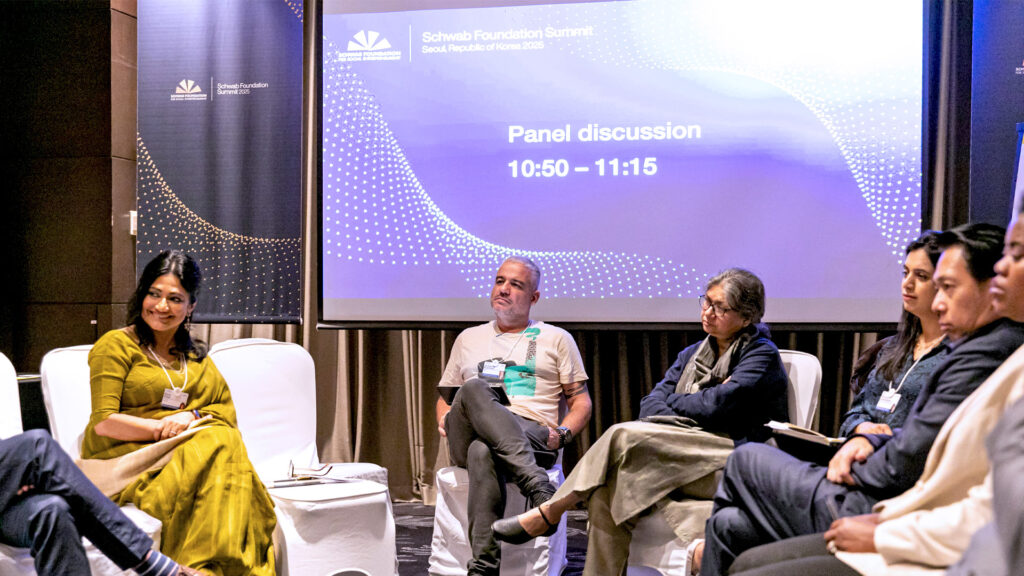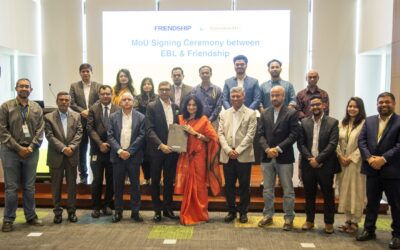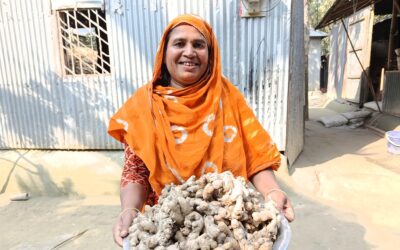
by Iffat Ara Sharmeen,
7 September, 2025
In an interactive session at the Schwab Foundation Summit 2025, the Friendship Founder speaks from her experience on delivering equity-driven solutions in a divided world.
Organised by the Schwab Foundation for Social Entrepreneurship, The Schwab Foundation Summit 2025 was held in Seoul, South Korea, from 19 to 21 June, hosting more than 200 entrepreneurs, innovators, and leaders to discuss cross-sectoral solutions for the most pressing challenges faced by the people and the planet.
Address Climate Change as a Multidimensional Problem
Climate change is more than just an environmental issue. It affects health, migration, domestic issues such as gender-based violence, and economic stability. Climate change poses severe risks to industries and communities, especially in developing regions, with potential financial losses of up to 25% of annual earnings by 2050 if global temperatures rise beyond 3°C. Therefore, to ensure appropriate climate justice, climate change must be seen as a multidimensional problem that should be addressed by diverse sectors.
Friendship founder Runa Khan joined the interactive session titled ‘Walking the Talk: Shifting from Greenwashing to Authentic Climate Action’, which focused on this issue, its overlap with other sectors and its contribution to inequality. The session explored practical ways of creating inclusive green jobs and sustainable livelihoods, especially among vulnerable communities.
Real Climate Action Begins with Listening
The Schwab Foundation Summit session was facilitated by Guilherme Brammer, founder of Radium72 from Brazil. Other participants included Mawuse Christina Gyisun, co-founder and COO of Sommalife, Ghana; Dharsono Hartono, CEO of PT Rimba Makmur Utama, Indonesia; and Priyanka Jaisinghani, Global Shaper Community Champion, New York Hub, USA.
Runa Khan began her talk by grounding the climate-health conversation in a deeply personal narrative, with the example of Mashkura, a woman from the Sundarbans who suffered multiple miscarriages because she drank saline water created by rising seas and neglected embankments. This story clarifies how health and climate change are inextricably linked, particularly in the char areas of Bangladesh marred by repeated flooding, disease, and survival.
Runa described how health adaptation is not merely a technical or infrastructure issue, but a matter of basic human survival. Instead of viewing these communities as victims, they could be active agents who rebuild their lives with courage and resilience despite overwhelming odds. She highlighted the invisibility of displaced populations, whose repeated migrations render them uncounted and unsupported by government systems.
Climate change also deepens gender inequities, as seen in the case of Nupur, a 14-year-old girl married off after floods left her family destitute. Friendship counters these systemic failures through community-driven solutions, such as floating hospitals, mobile clinics, and over 700 locally trained community medic-aides who provide access to healthcare door to door.
She spotlighted Friendship’s Community-Initiated Disaster Risk Reduction (CIDRR) model, where young people are trained to lead rescue efforts in times of disaster. Decentralised funding and nature-based solutions and infrastructure, such as raised plinths and mangrove restoration, empower communities to build resilience on their own terms.



